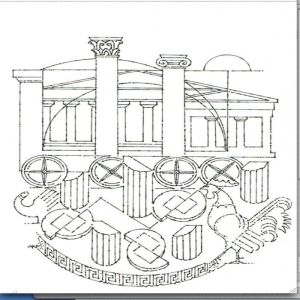

The Poetics
Author: Aristotle
Narrator: Albert A. Anderson
Unabridged: 1 hr 25 min
Format: Digital Audiobook Download
Publisher: Agora Publications
Published: 01/01/2010
Categories: Nonfiction, Philosophy


Author: Aristotle
Narrator: Albert A. Anderson
Unabridged: 1 hr 25 min
Format: Digital Audiobook Download
Publisher: Agora Publications
Published: 01/01/2010
Categories: Nonfiction, Philosophy
Aristotle (384-322 BC) was a Greek philosopher, a student of Plato, and a tutor to Alexander the Great. His writings, on such diverse subjects as rhetoric, logic, politics, ethics, biology, physics, and poetry, comprise some of the foundations of Western philosophy. He wrote as many as 200 treatises during his lifetime, of which only 31 survive. Of these, Aristotle's best-known works include Metaphysics, Nicomachean Ethics, Eudemian Ethics, Politics, and On the Soul.
During the golden age of ancient Greece bards roamed the countryside mesmerizing crowds by reciting the epics of Homer. Thousands of men and women gathered and were moved to tears by tragedies performed outside in amphitheaters during sacred festivals. Such an amazingly powerful and profound experie......more
It’s odd that the most ancient essay on literary criticism is one of the easiest to understand. It is so accessible. If you compare this to works by Nietzsche, Hegel and Freud the extremities of this can easily be seen. Aristotle explains his theory in the most basic language possible with no artful......more